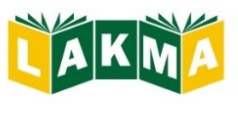BIODATA. I moved to Poland in 2006 from San Diego, California, and have made Wroclaw my home. For the first part of my teaching career I worked in language schools, teaching mainly younger learners and teenagers, and eventually branched out into other areas of EFL instruction, including exam English, business English, and teacher training. In 2012 I completed an MA in Applied Linguistics, with a focus on teaching English as a Foreign Language. In 2015, I undertook the Cambridge Delta. I am interested in a technology friendly approach, as well as materials-light techniques, favoring competency based teaching and learning. I feel the best way to develop professionally as a teacher is to share ideas and experiment in the classroom, always encouraging learners to take chances with their communication. Currently I work as an international teacher trainer and university lecturer, which provides plenty of opportunities to create and search for new ideas that help my teachers and students achieve their goals in the classroom.
PLENARY. Teaching Techniques for an Unplugged Classroom
Versatility pervades all aspects of modern life, from the clothes we wear to the classrooms where we learn. Young people in particular are expected to multi-task, which often means finding the right tool for the job. Foreign languages are no exception, whether teaching or learning: teachers utilize a variety of methods to teach, and learners use any language at their disposal to communicate.
In this session we will look at some materials-light and materials-free techniques for the modern language classroom. Participants will walk away with some adaptable, fun, communicative activities which can be used across a variety of teaching contexts to help learners improve their communication skills. We will also look at how teachers can structure lessons to suit their students’ needs, and how choosing the right tool doesn’t always mean plugging in and logging on.
WORKSHOP. In Search of Truth
In several arenas authenticity poses a challenge nowadays, from scientific communities to the media. We are constantly challenged on what is fact and fiction, and in many cases by people we have never met before. Online communities and subcultures are increasingly multicultural, presenting many of us with a variety of insights and perspectives.
For young people the above predicament means being a critical thinker, having the ability to navigate across cultures, and possessing the language skills necessary to communicate. In this workshop we will look at how authentic materials can be utilized in the foreign language classroom, and how the right lesson structure can improve learner outcomes. There will be several practical teaching ideas to give participants something tangible to walk away with, including something for both technophobes and technophiles.
